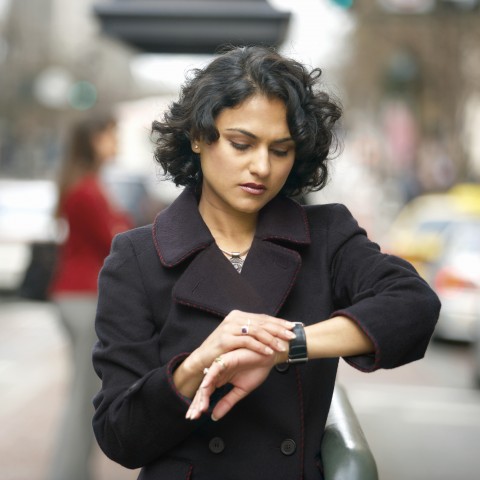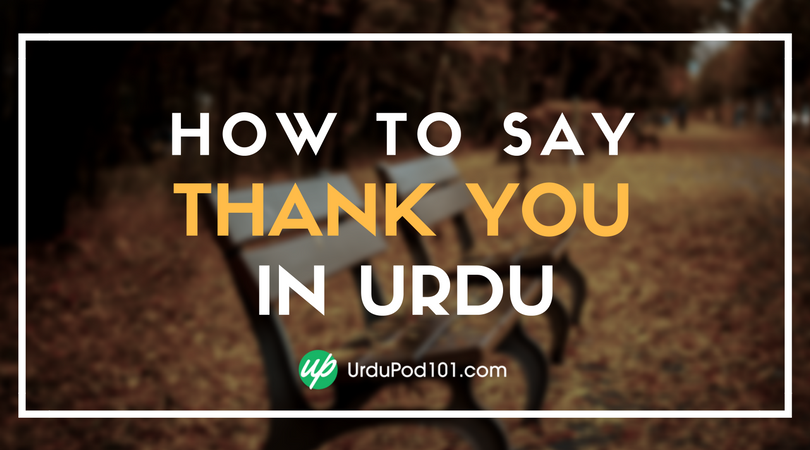
Self-help is the best help to improve your Urdu conversational skills since only you and you can help yourself by building a unique and comprehensive set of Urdu language skills to wade you through certain problematic situations concerning Urdu conversations.
Trying the clichés can also be risky; therefore, instead of following them blindly, you should choose an assortment of various veritable Urdu phrases and sentences to avoid miscommunication or no communication.
In this article, you will learn a few tested and trialed Urdu conversational sentences and phrases instrumental in several real-life situations. It will guide you on the general question of how to improve conversational skills in Urdu. Also, it will augment your conversation skills in Urdu by introducing you to the best way for improving Urdu conversational skills and learning Urdu conversational skills.

 Table of Contents
Table of Contents
- Make Your Own Language Profile
- Learn Urdu Reactions
- Learn Urdu Filler Words
- Learn Common Questions and Answers
- Learn Conversation Starters
- How to Improve Conversation Skills?
- Conclusion
1. Make Your Own Language Profile
Making your own Urdu language profile is a good strategy that can lead you to the achievement of a wide range of Urdu sentences and expressions that you can use according to the situational need. Below are some active approaches that can enable you to be a master Urdu learner. Let us have a look at them without any further delay.
· میرا نام عائشہ ہے اور میں ایک ڈاکٹر ہوں۔
Mera naam Ayesha hai aur mei aik doctor hun.
My name is Ayesha and I am a doctor.
· میں حسن ہوں اور میں ایک بزنس مین ہوں۔
Mei Hasan hun aue mei aik businessman hun.
I am Hasan and I am a businessman.
· مجھے ہاشم کہتے ہیں اور میں بیس سال کا ہوں۔
Mujhay Hashim kehtay hain aur mei bees saal ka hun.
I am Hashim and I am twenty years old.
2. Learn Urdu Reactions
Sounding natural while reacting to some questions is not an easy task. It exacts a great deal of effort and practice. In Urdu culture, if you become spontaneous and extempore you will earn more acceptability among the indigenous people. Let us learn some natural-sounding responses to a few frequently asked Urdu questions.
· کمال (kamaal) Excellent
Q.
کیا تمہیں آج کی فلم پسند آئی؟
Kia tumhein aaj ki film pasand aayie?
Did you like today’s movie?
A.
کمال! میں اس سے لُطف اندوز ہوا۔
Kamaal! Mei iss say lutf andoz hua.
That’s great! I enjoyed it.
· معاف کرنا (Maaf kerna) I am sorry
Q.
کیا تم میرے ساتھ خریداری کے لیے جاؤ گے؟
Kia tum meray saath khareedari kay liye jao gay?
Will you go shopping with me?
A.
معاف کرنا! میں مصروف ہوں۔
Maaf kerna! Mei masroof hun.
I am sorry! I am busy.
· کیوں نہیں (kyun nahin) why not
Q.
کیا تم میچ کھیلو گے؟
Kia tum match khelo gay?
Will you play the match?
A.
کیوں نہیں! یہ تو میرا خواب ہے۔
Kyun nahin! Yeh tu mera khawab hai.
Why not! It is my dream.
· کچھ خاص نہیں (kuch khaas nahin) nothing special
Q.
یہ لباس کیسا ہے؟
Yeh libaas kaisa hai?
How is this dress?
A.
کچھ خاص نہیں! دوسرا زیادہ اچھا ہے۔
Kuch khaas nahin! Doosra ziyadah acha hai.
Nothing special! The other one is better.
· ٹھیک ہے (theek hai) alright
Q.
کیا تم میری تجویز پر غور کرو گے؟
Will you consider my suggestion?
Kia tum meri tajveez per ghor kero gay?
A.
ٹھیک ہے! میں اس بارے میں سوچوں گا۔
Theek hai! Mei iss baaray mein sochin ga.
Alright! I’ll think about it.

3. Learn Urdu Filler Words
Filler words support you in multiple ways. At times, these assist you to borrow some time to pause and rephrase your sentence when you grope for appropriate words in several scenarios. The following section introduces a list of such filler words to bail you out of problematic situations positively.
· دراصل (dar-asl) actually
دراصل، میں اس میدان میں نیا ہوں۔
Dar-asl, mei iss meidan mein naya hun.
Actually, I am new in this field.
· اچھا (acha) well
اچھا، میری بات سنیں۔
Acha, meri baat sunein.
Well, listen to me.
· تو (tou) so
تو، کیا آپ مجھے بولنے کا موقع دیں گے؟
Tou, kia aap mujhay bolnay ka moqa dein gay?
So, will you give me an opportunity to speak?
· ارے (aray) wow
ارے! یہ تو ناقابلِ یقین ہے۔
Aray! Yeh to naqbil-e-yaqeen hai.
Wow! It is unbelievable.
· ویسے (waisay) by the way
ویسے، آپ کیا کرتے ہیں؟
Waisay, aap kia kertay hain?
By the way, what do you do?
· دیکھیں (dekhein) look
دیکھیں، آپ بات کسی اور طرف لے کر جارہے ہیں۔
Dekhein, aap baat kisi aur tarf lay ker ja rahay hain.
Look, you are dragging the conversation to another way.

4. Learn Common Questions and Answers
Questions and answers constitute a big part of our daily conversations; therefore, you cannot claim to be fluent in Urdu conversation skills until you have attained proficiency in asking some relevant questions or vice versa. Do not worry, if you are unfamiliar with such questions and answers for we have jotted down a set of them in the following part of the article for your convenience.
If you among your friends or in any informal gathering use the following question to ask the place of origin of someone.
Q.
· تم کہاں سے ہو؟
Tum kahan say ho?
Where are you from?

To ask the above-given question in a formal way, use the following sentence.
Q.
· آپ کہاں سے ہیں؟
Aap kahan say hain?
Where are you from?
Below are two possible answers to the questions asked above.
A.1
میں پاکستان سے ہوں۔
Mei Pakistan say hun.
I am from Pakistan.
A.2
میں پاکستانی ہوں۔
Mei Pakistani hun.
I am Pakistani.
If you want someone to know whether he or she can speak English or not in an informal way, refer to the following expression.
Q.
· کیا تم انگلش بولتی/ بولتے ہو؟
Kia tum English bolti/boltay ho?
Do you speak English?
To ask the same question formally, you should use the following expression.
Q.
· کیا آپ انگلش بولتے ہیں؟
Kia aap English boltay hain?
Do you speak English?
See below two possible answers to the questions asked above.
A.1
جی ہاں! میں انگلش بولتا ہوں۔
Jee haan! Mei English bolta hun.
Yes, I speak English
A.2
جی نہیں، میں انگلش نہیں بول سکتا۔
Jee nahin, mei English nahin bol sakta.
No, I cannot speak English
Q.
تمہارا نام کیا ہے؟
Tumhara naam kia hai?
What is your name?
A.1
میرا نام کمال احمد ہے۔
Mera naam kamal Ahmed hai.
My name is Kamal Ahmed.
A.2
میں احمد ہوں۔
Mei Ahmed hun.
I am Ahmed.
Q.
تمہاری عمر کتنی ہے؟
Tumhari umr kitni hai?
How old are you?
A.1
میں چوبیس سال کو ہوں۔
Mei chaubees saal ka hun.
I am twenty-four years old.
A.2
میری عمر تیس سال ہے۔
Meri umr tees saal hai.
I am thirty years old.
Q.
تم کیا کرتے ہو؟
Tum kia kertay ho?
What do you do?
A.1
میں ایک استاد ہوں۔
Mei aik ustaad hun.
I am a teacher.
A.2
میں آج کل ملازمت ڈھونڈ رہا ہوں۔
Mei aaj kal mulaazmat dhoondh raha hun.
I am looking for employment nowadays.
5. Learn Conversation Starters
If you want to be good at starting conversations, you should develop a habit of collecting the Urdu ice-breaking expressions. Let us start building this kind of vocabulary with the help of the following expressions.
· میں بازار جا رہا ہوں۔ کیا آپ کو کوئی چیز چاہیے؟
Mei bazaar ja raha hun. Kia aap ko koi cheez chahiye?
I am going to Bazar. Do you need anything?
· ہم ایک لمبے عرصے بعد مِل رہے ہیں۔
Hum aik lambay arsay baad mil rahay hain.
We are meeting after a long time.
· یہ پروگرام کتنی دیر چلے گا؟
Yeh program kitni der chalay ga.
For how long will this program continue?

· کیا آپ نے کبھی کسی سے ہنس کر بات کی ہے؟
Kia aap nay kabhi kisi say hans ker baat ki hai?
Have you ever talked to someone laughingly?
6. How to Improve Conversation Skills?
Everyone knows that there is always room for improvement. Even a very seasoned player needs to find new ways of improving his game plan. This is also the case with the process of Urdu language learning.
· Practice Makes a Man Perfect
Since there is no substitute for practice; therefore, to acquire perfection in the art of conversation in the Urdu language, you should spend as much time practicing it as you can. Be a smart player and always try to use your learnings in daily conversations. This will make you a well-versed Urdu speaker.
Try to socialize in Pakistani society and also initiate conversations regarding the subject of your interests, covering the topics that you have already learned in occasional gatherings. This will not only boost your confidence but also open new vistas to improve your conversational skill in the Urdu language.

· Do not overemphasize the Role of Grammar
Nobody can undermine the due role of grammar in the process of acquiring a language but it is noteworthy that a majority of grammarians are unable to perform well in real-life situations and others take precedence over them.
Keeping it in view, you should try to distinguish yourself from the copy-book grammarians and become a follower of those who spend their energy on developing a set of situational phrases and sentences and utilizes them to produce prolific results. This approach is recommended and can be a game-changer for you in the field of Urdu learning.
· Explore as Many Perspectives as You Can
No doubt, UrduPod101.com can do wonders and make you adept at the Urdu conversation skill but we also suggest you consult different other resources to develop other supplementary sources and distinguish yourself from the rest of the aspirants pursuing the acquisition of Urdu as a second language.
You can refer to multiple Urdu YouTube channels, Urdu Podcasts, movies, TV shows, etc., for they are extremely conducive to exploring the usage of Urdu nuances. Focus on the formation of various syntaxes and the usage of the vocabulary in the native settings so that you get the confidence to use them according to the situation skillfully.
· Involve the Natives
Native eyes and ears are very good for policing your learnings because learning and practicing without a proper guideline can also put you in hot waters, and you are prone to the risk of developing and committing some errors and mistakes that you are unaware of.
Due to this, you should always try to benefit from the native people when and where they are available to you, for they can give you many simple tips for dealing with some tricky situations. Such tips may do miracles for you by making your life easy because they are given by experienced native campaigners, and they remain unchallenged to date.
7. Conclusion
This article not only has guided you about communication skills in Urdu in general but also helps you answer the question of how to improve your Urdu vocabulary concerning Urdu speaking skills. It is also helpful in learning and practicing Urdu conversation skills by highlighting some inevitable certain Urdu conversation phrases and words for uplifting the skills of the Urdu language skills of beginners and students.
Do you think that you are prepared to test your Urdu conversation skills with native speakers? Whatever your answer is, do not worry and write to us at UrduPod101.com. We will get back to you at the earliest to address your queries and concerns.
Besides that, forget not to be a frequent visitor of UrduPod101.com. It is a rich repository of Urdu language resources like Urdu dictionary, pronunciation, grammar, vocabulary, etc. that will help you hone your integrated language skills and enhance your command of the Urdu language ultimately.
Very Happy Urdu Learning!










